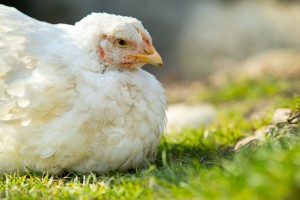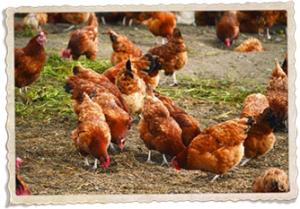We all remember going to the doctor’s as a kid and getting our shots. While hardly a pleasant experience, those shots did protect us against a wide variety of diseases, from the flu to the measles. The same is true of chickens. Our poultry needs their vaccinations just as much as we do, though for very different diseases.
While vaccinating your chickens can get confusing, we’ve broken it down into this easy-to-read guide:
Why Vaccinate Your Chickens?
Simply put, vaccines prevent diseases. They are vital to keeping a healthy, happy flock and preventing an outbreak from spreading throughout your region. How is this done? No matter if they’re for humans or chickens, vaccines carry a weakened or inactive form of the virus. This triggers a response from the immune system, which learns how to fight back against the disease later on.
It is important to note that while vaccines work the vast majority of the time, nothing in medicine is 100% effective. This can cause people to become skeptical, but there is no need to be. By not vaccinating your chickens, they will almost certainly get sick. However, by vaccinating them, they will almost certainly not get sick. Even if one bird in your flock falls ill, one is far better than all.
Which Vaccines Should You Get?
Backyard chickens don’t need the same vaccine regimen as commercial chickens. That’s because some of the diseases that commercial chickens are exposed to (such as Infection Bronchitis or Infectious Laryngotracheitis) are not as prevalent in backyard flocks. They also run a much lower risk of it spreading outside of the flock.
Nevertheless, there are three major vaccines that all backyard chickens should get. Here’s where to start:
Marek’s Disease – 1 day old
Marek’s Disease is one of the most serious and most common diseases found in backyard chickens. It can cause tumors, blindness, partial paralysis, and more. There is no treatment, and when birds are infected, they are infected for life. Marek’s Disease can spread to anywhere from 10-50% of your flock, killing up to 100%. While some chickens may survive, they will suffer from life-long effects.
Vaccinating your chickens against Marek’s Disease can drastically reduce the spread of the disease. Most chickens are vaccinated the day they hatch. This is done for two reasons. The first is how pervasive Marek’s Disease is, easily spreading through much of your flock. The second reason is that even day-old chicks can be infected. As such, by vaccinating your chicks as soon as possible, you will best protect them from this disease.
Newcastle Disease – 14 to 21 days old
While not as common or as severe as Marek’s, Newcastle Disease can become a serious problem in many backyard flocks. It is spread through feces, secretions, and other droppings. It can even spread to humans who have been in direct contact with infected birds. The disease can range from mild to severe, and it includes many symptoms such as coughing, sneezing, diarrhea, drooping wings, paralysis, or sudden death. There is no treatment for Newcastle Disease, and chickens’ mortality rates can reach up to 100%.
It is recommended that chickens get vaccinated when they’re 14 to 21 days old. The vaccine is not administered through a shot, but rather it is mixed in with your chickens’ water.
Fowl Pox – 10 to 12 weeks old
Finally, there’s fowl pox. Also known as avian pox, it is a highly contagious disease that is extremely common in unvaccinated backyard chickens. It can spread to virtually any bird species, including chickens, ducks, turkeys, pheasants, wild birds, and more. There are two types of fowl pox: dry pox and wet pox. Dry pox is characterized by skin lesions that develop over the skin’s un-feathered areas (think the comb or wattle). Wet pox, meanwhile, has the skin lesions develop on the oral cavity, trachea, or larynx. Overall, fowl pox has a low mortality rate, but it can adversely impact your chicken’s health and egg production.
Vaccination for fowl pox should begin anywhere from 10 to 12 weeks of age. It is administered through the wing-stick method. After vaccinating, check your birds for a “vaccination take” (swelling or scab formation around the injection site) roughly 7 to 10 days later.
Here at Chickens for Backyards, we take steps to vaccinate all of our birds for Marek’s Disease before they arrive to your backyard flock. To learn more, contact us today.

